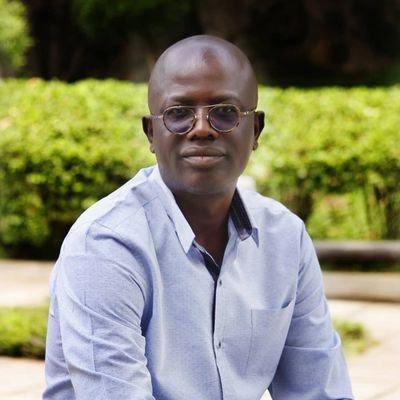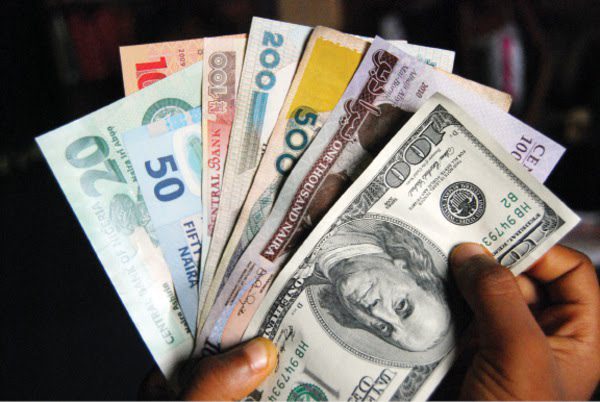Democracy & Governance
Now, Let’s Talk About Revolution -By Olusegun Adeniyi

Sub-Saharan Africa is one of the fastest developing regions in the world. Population growth, expanding economic performance and a wealth of natural resources sit alongside dynamic political developments and an increasingly vocal civil society. However, diverse parts of the continent still struggle with dictatorial regimes, omnipresent corruption, and assertive malign foreign influences, sometimes bringing back memories of a colonial past. What are the key challenges Africa faces today? How do Africans view the role of external factors, such as China, Russia, Europe, or the US? How can they deal with the heavy impact of climate change, ocean pollution, drought, land degradation and depletion of natural resources? Where will sub-Sahara Africa be in 15 years?
The foregoing was the issue before us on Tuesday morning in Prague at an invitation-only working breakfast on ‘Africa Rising’ hosted by the British embassy and attended by diplomats from several countries. Moderated by Jana Hybášková, a former EU Ambassador to Namibia, speakers included Andrea Papus Ngombet Malewa, a presidential candidate from the Republic of the Congo, Asha Ahmed Mwilu, journalist and filmmaker from Kenya, Katherine Evans of the Africa Directorate, Foreign and Commonwealth Office, United Kingdom and myself.
I arrived Prague, Czech Republic on Sunday at the invitation of ‘Forum 2000’ to mark the 30th anniversary of the ‘Velvet Revolution’ which brought to power then Czechoslovakia’s famous playwright and political dissident, the late Mr Vaclav Havel. Described as the ‘Autumn of Nations’, 1989 was a year that witnessed mass protests for the enthronement of democracy and human rights in several countries in Eastern Europe, Asia and Latin America. The gathering in Prague brought together writers, civil society activists, politicians and academics for the purpose of ‘Recovering the Promise of 1989’.
Founded in 1996, ‘Forum 2000’ is an initiative of the late Havel, in collaboration with Japanese philanthropist, Yohei Sasakawa, and the late Nobel Peace Prize Laureate and Holocaust survivor, Professor Elie Wiesel. The Forum, which draws inspiration from the ideals for which Havel lived and died, supports “the values of democracy and respect for human rights, assisting the development of civil society, and encouraging religious, cultural and ethnic tolerance”, while providing “a platform for global leaders, as well as thinkers and courageous individuals from every field of endeavour, to openly debate and share these critical issues.”
At the opening session on Monday,
speakers included Yemeni human rights activist and Nobel Peace Prize
Laureate, Tawakkol Karman. But it was Alenxandr Vondra who spoke to the
philosophical underpinning of the conference: “30 years ago, we were
lucky: We had a generation of new political leaders and for them
fighting for democracy was not just an abstract concept but the way of
life.”
Four sessions captured two of the most significant events of 1989:
‘Chinese Superpower and the Promise of Tien´anmen 1989’ and ‘Germany 30
Years after the Fall of the Berlin Wall’. While the uprising in the then
East Germany led to the fall of the Berlin Wall along with the
communist regime, what followed was economic prosperity for the united
country. In contrast, the Tien’anmen Square protest in Beijing was
brutally put down by the Chinese authorities. 30 years later, the
communist party has strengthened its hold on power yet the society has
also prospered economically. But perhaps the most remarkable of those
(1989) revolutions happened in the then Czechoslovakia.
It began on 17th November 1989, with a
non-violent protest to mark the 50th anniversary of the 1939 invasion of
Czech universities by the Nazi army which killed no fewer than nine
students and sent many to concentration camps. Providing inspiration
(through underground radio broadcasts) for students and members of civil
society who converged in Prague on that day and in the days that
followed was Havel. The protest quickly assumed a life of its own and
within a period of six weeks (by 29th December 1989), the communist
government was overthrown by the people without a single gun fired.
Havel became the president of Czechoslovakia.
Having been arrested and detained by the communist regime several times,
Havel spent five years in jail between 1979 to 1983 after which he
published his famous book, ‘Letters to Olga’, a compilation of
correspondence to his wife while incarcerated. In power, Havel lived by
the ideals he espoused as an opposition figure. He established
democratic political institutions founded on the rule of law,
transformed his country from a state-controlled economy to a free market
economy and allowed civil society to thrive. It is in his honour that
‘Forum 2000’ brings together hundreds of people from across the world
every year for dialogue on critical issues affecting humanity.
Indeed, there could not have been a more appropriate time to reflect on the legacy of 1989 than now. Countries considered bastions of democracy are now electing leaders with dictatorial bent and scant regard for human dignity. “30 years on, we are facing a very set of new challenges”, said respected American political scientist, Francis Fukuyama, who argues that while Russia and China have become aggressive and self-confident, “we also have the more insidious threat of demagogic populists who had been elected by their peoples and have started to undermine the rule of law.”
It is remarkable that the 1989 revolutions produced diverse outcomes in different countries. While the bloody protests in China did not exactly lead to a collapse of the political system, it became a catalyst for the economic prosperity now being enjoyed by the people. In the Czech Republic, the bloodless revolution dismantled the command and control political structure and replaced it with one in which the people now have more voice in their affairs.
To come back home, even before Omoyele Sowore came up with his ‘RevolutionNow’ campaign that has landed him in indefinite detention, it was not uncommon to hear Nigerians say rather glibly, “We need a revolution in this country” with some even qualifying it by adding the word, “bloody”. To those Nigerians, there will be no change in our country until members of the ruling class are given the ‘Jerry Rawlings treatment’. To opportunistic politicians, the ‘revolution’ they envisage is one that will oust and replace the party and people currently in power. To moderates who are simply disenchanted with the status quo, the system is in need of shock therapy to necessitate a change of direction. For all these groups, there is a counter-force, consisting mainly of those in power at every particular period (it is APC today, it was PDP yesterday). To this group, the notion of a ‘revolution’ of any kind is ‘treasonable’. The problem with members of this group is that their position changes the moment they move from government to the opposition.
That we have enormous challenges in our country is no longer in doubt. But how do we make the transition to a system that is more accountable and can leverage the latent capacity of our people? Can it come from the streets as was successfully demonstrated in Prague 30 years ago? It is very unlikely. Can it come through a conscious decision of the leadership class to chart a sustainable path to the future as China did following the Tien’anmen Square tragedy, also 30 years ago? While it behooves us to find answers to these questions, time seems to be running out.
Incidentally, this is also the 30th anniversary of a famous interview granted by the late Professor Chinua Achebe (published on 28th May, 1989) to respected literary editor, Charles H. Rowell, currently a Professor of English at Texas A&M University. In the interview, which has since been published into a book, Achebe told a story which he would, by his own admission, use “again and again because I think it is a marvellous little story.” I have also recounted Achebe’s narration of it before on this page because it addresses leaders at all levels of society—religious, political, professional, ethnic etc.—who have conspired to hold down our people to preserve their personal privileges: “The snake was riding his horse, coiled up in his saddle. That’s the way the snake rode his horse. And he came down the road and met the toad walking by the roadside. And the toad said to him, ‘Excuse me, Sir, but that’s not how to ride a horse.’ And the snake said, ‘No? Can you show me then?’ And the toad said, ‘Yes, if you would step down, Sir.’ So the snake came down. The toad jumped into the saddle and sat bolt upright and galloped most elegantly up and down the road. When he came back he said, ‘That’s how to ride a horse.’ And the snake said, ‘Excellent. Very good. Thank you. Come down, if you don’t mind.’ So the toad came down, and the snake went up and coiled himself in the saddle as he was used to doing and then said to the toad, ‘It is very good to know, but it is even better to have. What good does excellent horsemanship do to a man without a horse?’ And with that he rode away…”
Achebe provided perspective to the story: “The snake in this story is an aristocrat, and the toad a commoner. The statement, even the rebuke, which the snake issues is, in fact, saying: ‘Keep where you belong. You see, people like me are entitled to horses, and we don’t have to know how to ride. There’s no point in being an expert. That’s not going to help you.’ If you think deeply about this story, it’s a two-edged sword. To put this other edge to it, which is not noticed at first… this other side is that the snake is incompetent, the snake is complacent, the snake is even unattractive. It’s all there in the story, and the time will come in this political system when all this will be questioned. Why is it that a snake is entitled to a horse? Why is it that the man who knows how to ride does not have a horse to ride? This questioning will come in a revolutionary time, and when it comes you don’t need another story. It is the same story that will stand ready to be used; and this to me is the excellence of the griot in creating laughter and hiding what you might call the glint of steel. In the voluminous folds of this laughter, you can catch the hint of a concealed weapon which will be used when the time comes…”
It is instructive that Achebe’s story ended on an ominous note and that should teach us some lessons. One, revolutions are most often spontaneous and sometimes ignited by seemingly innocuous things. Two, most revolutions create more problems than they solve and given the ethno-religious divisions within our society, the prospect of such an upheaval in Nigeria should frighten us. Three, not all countries are as lucky as the Czech Republic to have a moderate leader with intellect and integrity like the late Havel. Where some leaders left the world with that dreary word, balkanisation, following the fragmentation into several states of the Balkan Peninsula at the end of first World War, Havel ensured a peaceful break up of Czechoslovakia into Czech and Slovakia through dialogue.
The ultimate lesson from the foregoing is that whether in Europe, Asia, America or Africa, what the people desire is accountable government that ensures they meet their basic aspirations. And on that score, the role of leadership cannot be overemphasized.


















